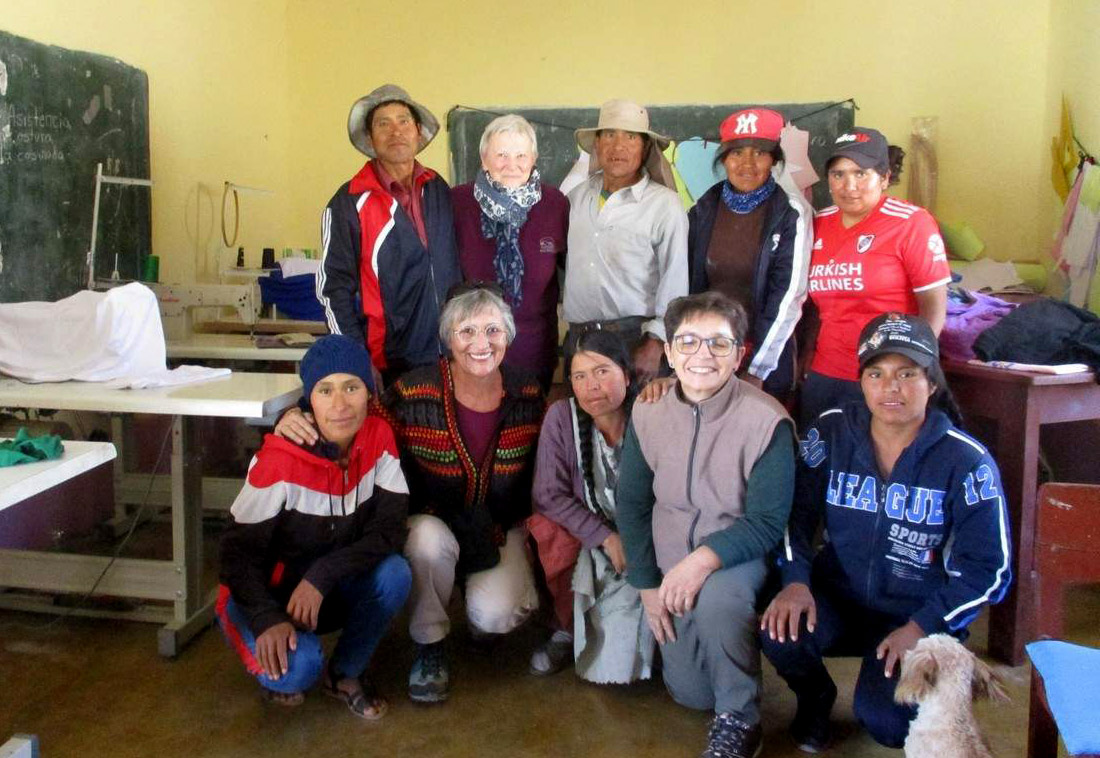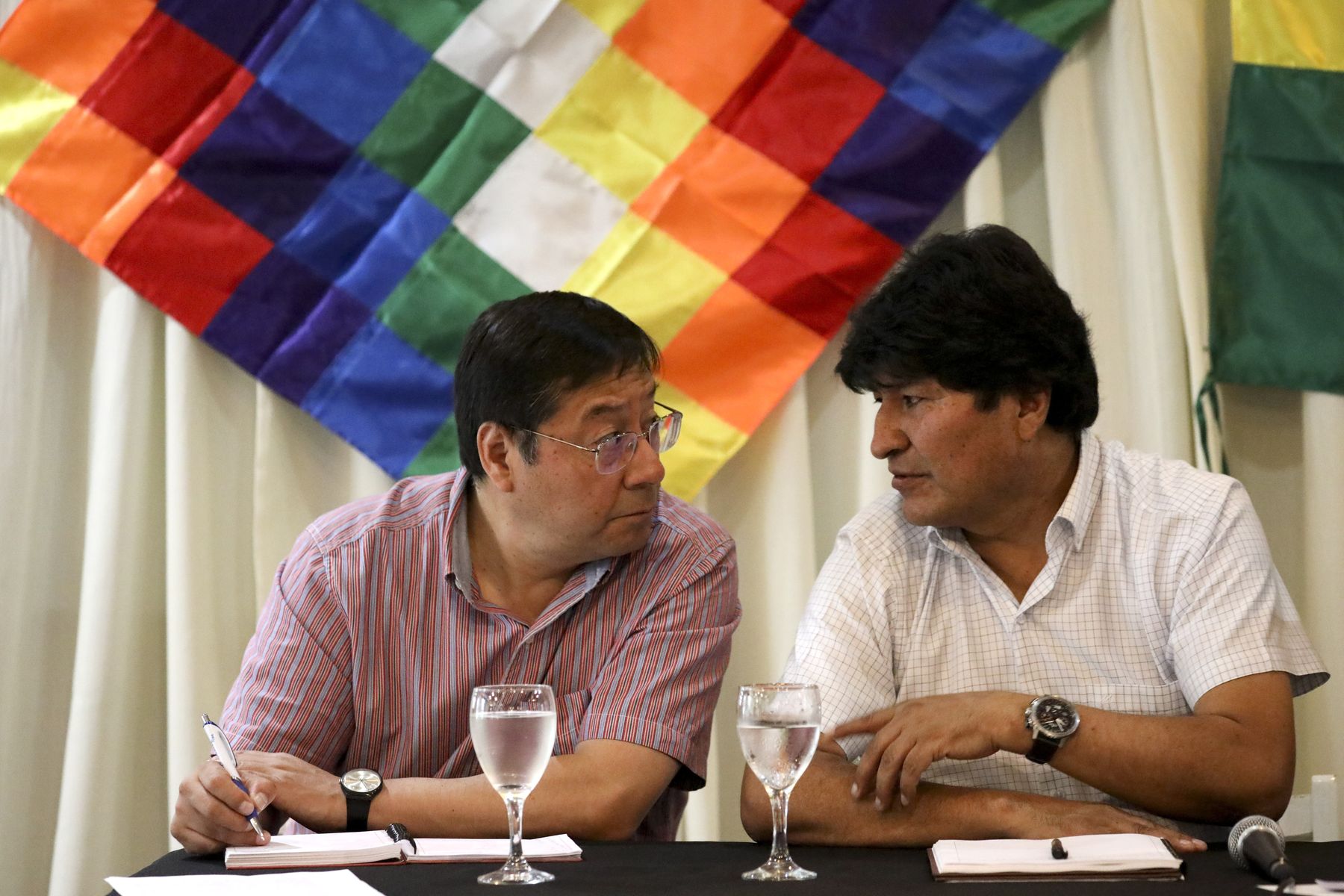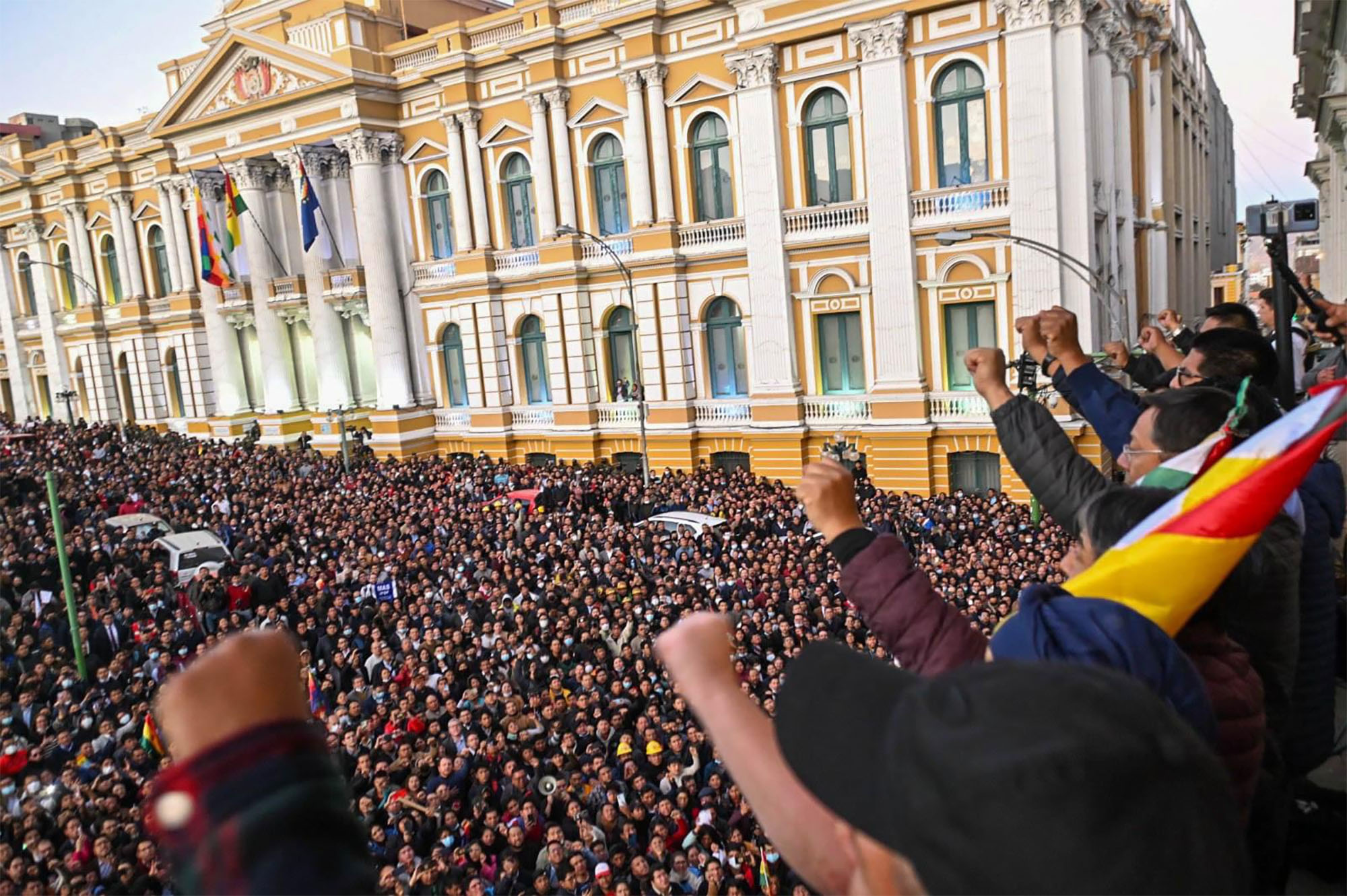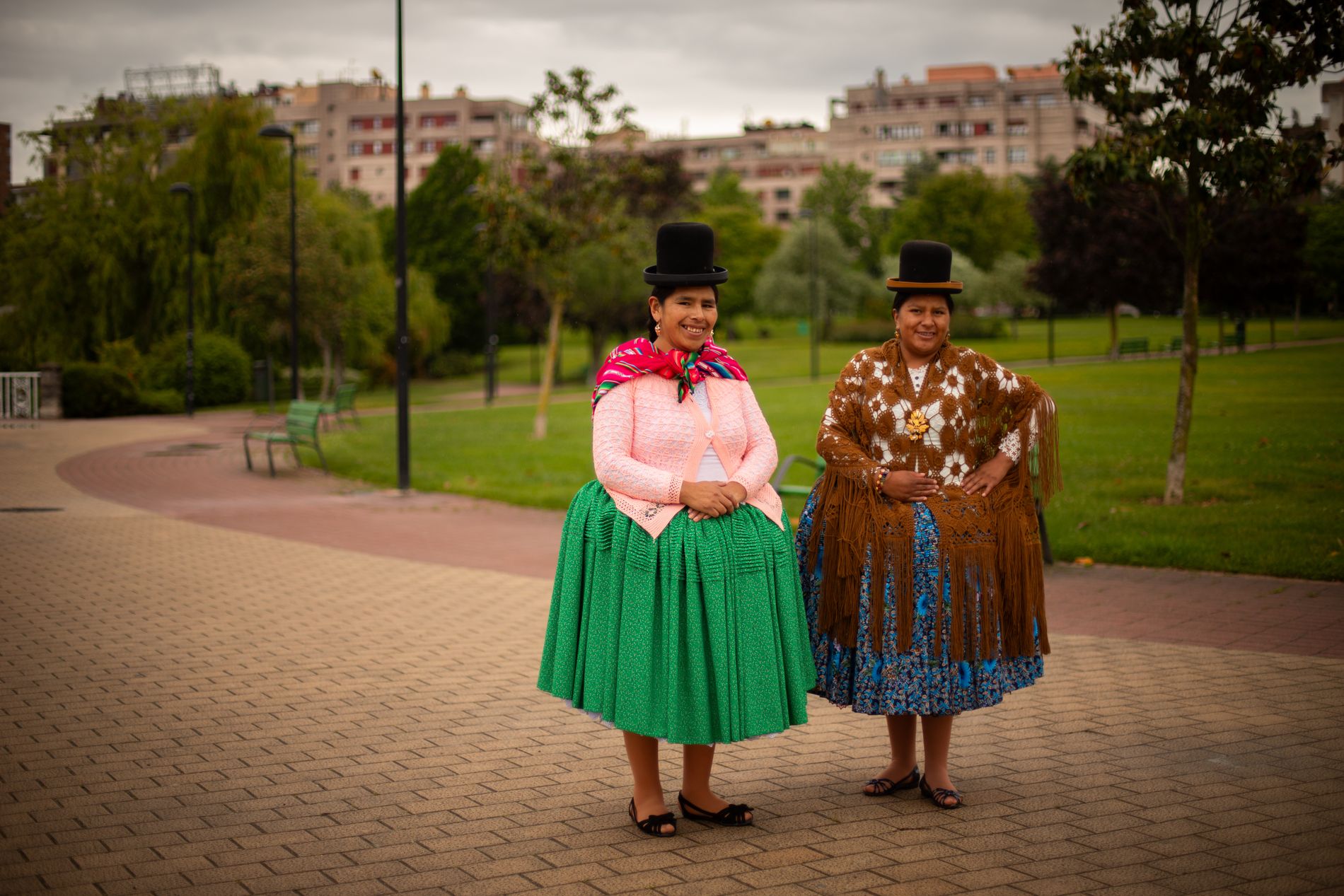Bolivia: real challenges
- The demonstration of strength, organization and mobilization of the popular sectors in the October 18 elections in the Plurinational State of Bolivia made possible right-wing fraud unfeasible. In fact, that was the only option on the right: go to the second round to bring together in a single candidate the votes against the HAF. But it was the MAS that won clearly, with an absolute majority (55%, matching the 2005 results with the arrival of the MAS to the government) and with a majority in the Chambers of Deputies and Senates.

This blunt victory uncovers several aspects
Popular mobilization has been key: the coup government, which would initially be in power for only three months, found an excuse to delay elections three times in the midst of the pandemic. Until the organized people said it was enough. During the month of August, the country ' s roads and communication channels were cut until the election dates were set. Thousands of Bolivians, organized in trade union, agricultural and social organizations, forced the Government to hold elections. And then, in the elections, they beat the Machiavellian Jugarreta who a year earlier had stolen political power from them. This teaches the left: electoral victories are possible if the reactionary forces have been defeated in the street and with mobilisation.
The MAS-IPSP is still alive: although the electoral message has focused on the objective of improving the economy and collecting the votes of the so-called middle class, the MAS-IPSP has shown that it is the force that continues to represent the majority of the Bolivian people. What a different image to the one shown a year ago by the coup propaganda, where large sectors insulted the HAF! The alleged electoral fraud is over. So clear was the victory, that those who developed and supported it – the leaders of the Organization of American States (OAS), Luis Almagro and the Bolivian right – had no choice but to congratulate Arce and Choquehuanca.
"Electoral victories are possible if the reactionary forces have been defeated in the street and with mobilization"
Victory crosses borders: The recovery of the government by MAS is a major obstacle to the imperial and authoritarian strategy promoted by the OAS, the Lima group and the U.S. administration. At the same time, what Abya Yala achieved is an achievement for the rest of the world. Another piece of the table in the permanent struggle against imperialism that exploits people and nature: a new breath for Latin American integration and that bets on the interests of the peoples and of the humble sectors.
Decolonial content of victory: there is no doubt that physical and symbolic violence against the people of origin has influenced the mobilization of Aymaras, Quechuas and other broad sectors. This violence was reflected in the massacres of Sacaba and Senkata, in the burning of the wipse, in the evangelizing messages that call “savages” those who called for the elections, in the imposition of the Bible or in those who deny the worldview of the peoples of origin. With the current electoral offer, they have made it clear that they are not prepared to return to the colonial state of the coup elites.
Need for relief: Beyond the unequivocal leadership traits of Evo and Álvaro García Linera, the presentation for the fourth term was probably not the best option. The new candidates, in exceptional circumstances, have managed to recover many of the votes lost in the previous presidential elections last year. The formation and promotion of new leaders is a guarantee for the processes of change, especially of the collective heads, where there are no essential leaders. In Bolivia and elsewhere. The Bolivian people have demonstrated that they do not support a person, but rather a political project of sovereignty in favour of the people and grass-roots sectors of origin.
The irregular “middle class”: it is very likely that part of the so-called middle class that did not vote the MAS in 2019 has now voted the MAS. Why? Probably a mixture of elements: another attitude towards the candidacy that has replaced the binomial Evo-García Linera, worn down mediately, that the right and the factual powers have been better understood, or that the management of the government of Jeanine Áñez is better valued against the intransitable and corrupt management of the HAF. The infinite contradiction between what it is and what it wants to be, the lack of class consciousness and the colonized mentalities turn these sectors into uncertain subjects, which at certain times can even be key.
In addition, the new scenario that opens raises some doubts and challenges that go beyond how to deal with the pandemic, the health and economic crisis.
Democracy has not recovered: despite the frequent use of this declaration in recent days, what has been recovered (even to hold office…) has been political power. But this is not synonymous with democracy. Economic power will remain largely in the hands of the golfing oligarchy and, if there is no popular control over the means of production, the state is weak in the face of very likely economic sabotage. In this respect, the HAF should give priority to the Community economy and state control of the key constitutionally collected sectors. The Vitoria-Gasteiz Executive must also disregard the agreements with the agricultural oligarchy, which has been the cause of the coup d’état.
The main media, essential for the coup and giving legitimacy to the government of Áñez, are still in private hands. Without genuine democratisation of information it is very difficult to move towards real democracy.
And what about the organized violence of the state! The weapons remain in the hands of the police officers who revolted against the government and the military who invited Evo to resign. A year ago it became clear that political power and state control are different things. How can we try to alter the correlation of forces within armed organizations soaked with a colonial and racist mindset? How can we change these armed institutions, which are protectors of local oligarchic power and are docile to Yankee imperialism, if it was not achieved in the previous fifteen years? This is probably the main challenge of the new government. In this sense, the birth of popular militias may be a kind of counterweight.
"It remains to be seen whether MAS will seek to accelerate the process of change or whether, on the contrary, it will not cease to restore the welfare state that promotes the rights of indigenous peoples and social movements"
Will there be justice and reparation? : Will those responsible for the coup be prosecuted? What about those who took decisions that do not correspond to a provisional government (privatization of public enterprises, change of ambassadors, expulsion of Cuban doctors…)? And what are those responsible for the massacres of Sacaba and Senka and for other murders, imprisonments and persecutions? Calls for unity and reconciliation cannot lead to impunity. It is a task of justice, dignity and credibility that the new Government must carry out before its people.
Will you accept your defeat? : Although the electoral coup has left them stunned and weakened, the Bolivian economic elite and the US administration will not allow the people to own their future. Despite the formal approval of the new government, they will now attempt to erode themselves, probably through the hybrid war, combining economic, media and psychological attacks, and using law enforcement and armed forces to destabilize the government. As long ago in Venezuela. If they did a coup d ' état to contain the process of change and take control of Bolivia, we cannot think that they would democratically accept the outcome of the elections. It is only possible to study the history of peoples.
Self-criticism and tension are essential: what happened in Bolivia in the last year will inevitably influence the initiatives of the new HAF government. In order to ascertain the degree of radicality of the measures to be taken by the Government, it will be essential to wait for them to be adopted. It will have to be seen whether it will seek to speed up the process of change or whether, on the contrary, it will not go through the restitution of the welfare state that promotes the rights of the peoples and social movements of origin; without obvious structural changes, trying to avoid the clash with the bourgeoisie and the related powers and not going through red lines (processing of politicians and officials linked to the coup, intervention against economic interests and some media, deep cessation of the police and military authorities…). The threat of the armed forces and the police, together with the economic elites and their paramilitary shock groups, can condition the measures to be taken by the new government, leading them to a light version of the governments of Evo and García Linera. In this sense, an exercise of constant self-criticism is essential, as well as maintaining tension in the bases and structures of the HAF to avoid the initial intentionality and deviation of the needs of the sectors to which it represents. It is clear that what remains with Moreno in Ecuador is not going to happen in Bolivia (MAS-IPSP has nothing to do with the structure and form of organization of Alianza País). But it will be necessary to be alert, without avoiding the inevitable struggle between bourgeois power and imperialism, and the working class and peoples.
A year later, do we go back to the same place? Yes and no. The response to these questions will condition the consolidation of the change needed by the people of Bolivia, Abya Yala and the peoples of the world.
*Iñaki Etaio and René Behoteguy are Askapena militants
Zubiak eraiki Xiberoa eta Boliviaren artean. Badu jadanik 16 urte Boliviaren aldeko elkartea sortu zela Xiberoan. Azken urteetan, La Paz hiriko El Alto auzoko eskola bat, emazteen etxe baten sortzea, dendarien dinamikak edota tokiko irrati bat sustengatu dituzte.
The sub-provincial elections in Bolivia, held on March 7, can be read as a radicalization of the conflict scenarios, with the MAS being the most hegemonic party at the national level, but with a right with a strong and radicalized presence in the department of Santa Cruz and in... [+]
The vote will take place in favour of Arce Catacora and David Choqueuhanca, despite the doubts that exist as a result of the contradictions in Mas’s candidacy. These are reasonable doubts, since the personalist and vertical stages in the management of the State by the HAF have... [+]




















